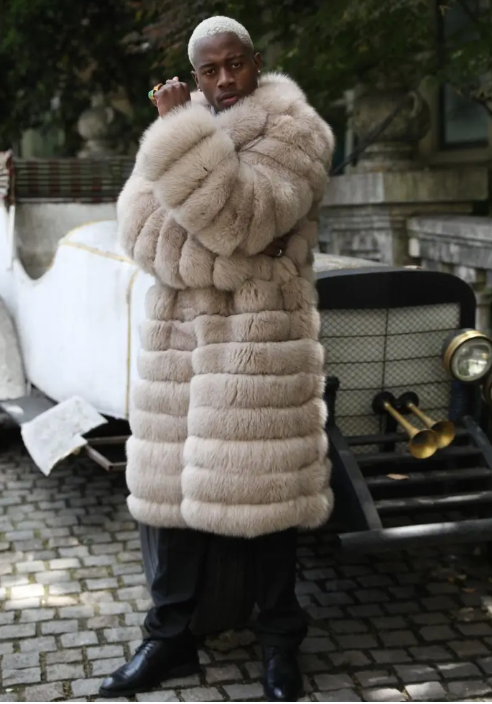Cleaning and caring for a natural fur coat requires special attention to preserve its beauty and longevity. Here are some general guidelines:

Professional Cleaning: It is recommended to have your fur coat professionally cleaned by a furrier or fur specialist. They have the expertise and proper equipment to handle fur garments safely. Professional cleaning helps remove dirt, oils, and odors while maintaining the fur's quality.
Avoid Moisture and Heat: Keep your fur coat away from excessive moisture and heat sources such as direct sunlight, heaters, or radiators. Excessive heat and humidity can damage the fur and cause it to dry out or become brittle.
Proper Storage: When not wearing your fur coat, store it in a cool, dry, and well-ventilated space. Avoid using plastic bags, as they can trap moisture. Instead, use a breathable garment bag or wrap the coat in a cotton sheet to protect it from dust and allow air circulation.
Regular Brushing: Gently brush your fur coat with a fur brush or a wide-toothed comb to remove loose dirt, restore its natural luster, and prevent matting. Brush in the direction of the fur's natural flow, taking care not to pull or tug too hard.
Handle with Care: When wearing or handling your fur coat, be cautious around sharp objects, jewelry, and rough surfaces that can damage or snag the fur. Avoid applying perfume, hairspray, or other chemicals directly onto the fur, as they can cause discoloration or damage.
Fur Revival: If your fur coat becomes flattened or loses its fluffiness, you can revive it by shaking it gently or using a handheld hairdryer on a cool setting. Allow the fur to hang freely and naturally regain its shape.
Professional Storage: During the warmer months, consider professional fur storage services provided by furriers or specialty storage facilities. They offer climate-controlled environments to protect your fur coat from heat, humidity, and pests.

Remember, specific fur types may have unique care requirements, so it's always best to consult the manufacturer's care instructions or seek advice from a fur specialist for personalized guidance.
Please note that the information provided here is general in nature, and it's important to follow the care instructions provided by the furrier or manufacturer to ensure proper care for your specific fur coat.















